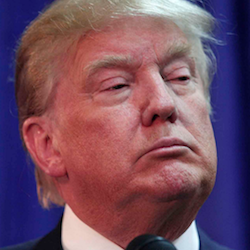
By Chris Rossini
When people are down and out, it opens up the doors for the "take charge" types. We've been witnessing that with the Donald Trump campaign. Now that the Paris blowback has occurred, we're starting to see some ugly stuff from Trump. First, he's using the phrase "we have no choice but to [do what Donald wants]" By using that phrase, Trump is shutting down debate. So for example, Donald says that "We're gonna have no choice, absolutely no choice," in having to close mosques. Of course there's always a choice! However, it is the nature of "take charge" types to present the argument as if it's their way or the highway. When asked about clamping down on Muslims, Donald says: “We’re going to have to do things that we never did before. And some people are going to be upset about it, but I think that now everybody is feeling that security is going to rule. And certain things will be done that we never thought would happen in this country in terms of information and learning about the enemy. And so we’re going to have to do certain things that were frankly unthinkable a year ago.”
Donald would not rule out special ID cards for Muslims either. Again, pay attention to how Trump argues it:
“We’re going to have to — we’re going to have to look at a lot of things very closely.”
Are we seeing a preview of a Trump Presidency?
If so, this is very troubling. 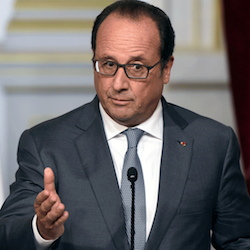
By Jeff Deist
On the heels of recent events in Paris, French President Francois Hollande proves the old adage that when all you've got is a hammer, the whole world looks like a nail: Hollande announced that France will intensify air strikes against the so-called Islamic State (IS) in Syria, and said that the French Constitution should be changed to better deal with this kind of crises in future. He also unveiled plans to boost security spending and hire 5,000 new police officers over the next two years. Hollande made it clear that, as a result, France will miss the deficit reduction targets agreed with the European Commission, adding that “the security pact prevails over the [EU] stability pact.”
It's important to note that when state intelligence and security agencies fail spectacularly, their budgets and personnel increase. Nobody gets fired, nobody apologizes. On the contrary: military, security, and intelligence bureaucrats use events like terror attacks to demand more money, more power, and an expanded mission. This represents the very antithesis of how markets should operate, where failures are swiftly punished and non-performing actors are sent into bankruptcy. Is there something magical about state-provided security that forces us to accept this?
The left loves to talk about supposed market failures, but why don't we talk about state failures in the aftermath of tragedies like Paris? Consider the enormity of the US government's failures culminating on September 11th, 2001. Even after spending trillions on Army, Navy, Air Force, Marines, DOD, CIA, NSA, FBI, FISA, state and local police, etc. etc., a handful of middle class Saudi flight students with box cutters were able to kill several thousand Americans. But did a single American official lose their job as a result? Without market discipline and market signals, it is impossible to judge the effectiveness of Hollande, Bush, or Obama in fighting terrorism or anything else. It is impossible to judge alternative uses of money and manpower. It is impossible to calculate whether a particular policy "works." Everything becomes a matter of good intentions. Have you noticed that intentions loom large as a justification for the war on terror? We are the good guys, spreading democracy and fighting extremism. Thus the nobility of our mission excuses the occasional collateral damage. In this sense the war on terror brings out in conservatives the same errors, emotionalism, and blind spots that the war on poverty elicits among left progressives. A progressive looks at a neighborhood mired in poverty and reacts viscerally. The state must act, and act quickly, to alleviate the situation. The fastest and most obvious remedy is money, since poverty is defined by a lack of it. So we should give poor people money, and keep doing so until they are not poor. Never mind the underlying causes of poverty: criminality, unwed birth rates, drug use, and indifference/hostility to education (progressives think these are symptoms rather than causes, of course). Never mind that anti-poverty programs implemented by the state are thoroughly wasteful and create all the wrong incentives. And never mind that generation after generation remains mired in poverty, made hopelessly dependent on government despite the trillions spent since the birth of the Great Society. For progressives, good intentions are all that matters. Only a heartless conservative could look at a poor neighborhood and think government should do nothing-- or worse yet, that the private sector could attack poverty more effectively. A conservative looks at an act of terrorism and also reacts viscerally. The state, through its military apparatus, must get the bastards. The fastest and most obvious approach is to lash out with bombs, planes, tanks, guns, and boots on the ground. ISIS wants war, let's give them just that. Never mind that both the US and France have been thoroughly involved in destabilizing the Middle East for decades. Never mind that endless military spending has not made America or Europe one iota safer, and in fact has made them less safe due to readily predictable blowback. And never mind that Christians, who once found reasonable security in Iraq, Syria, and Libya, are now fleeing for their very lives in those countries. What matters is that we do something, and fight the bastards over there. Only someone who hates freedom could dare question whether any of this actually works, or suggest we're actually worse off than before the death, carnage, and expense of the Iraq and Afghanistan wars. And so it goes. While states and politicians blunder about, perhaps the world will wake up to what really creates peace and security: commerce, trade, and military nonintervention. In the meantime, we might look at a place like the Bataclan Theatre in Paris and ask ourselves whether private security might have made a difference. This article was originally published at The Mises Institute. 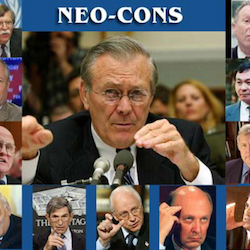
By David Stockman
Exactly 26 years ago last week, peace was breaking out in a manner that the world had not experienced since June 1914. The Berlin Wall—-the symbol of a century of state tyranny, grotesque mass warfare and the nuclear sword of Damocles hanging over the planet—-had come tumbling down on November 9, 1989. It was only a matter of time before the economically decrepit Soviet regime would be no more, and that the world’s vast arsenal of weapons and nuclear bombs could be dismantled. Indeed, shortly thereafter according to Gorbachev, President George H.W. Bush and Secretary Baker promised that NATO would not be expanded by “as much as a thumb’s width further to the East” in return for acquiescing to the reunification of Germany. So with its “mission accomplished” there was no logical reason why NATO should not have been disbanded in parallel with the Warsaw Pact’s demise, and for an obvious and overpowering reason: On November 9, 1989 there were no material military threats to US security anywhere on the planet outside of the suddenly vanishing front line of the Cold War. As it turned out, however, there was a virulent threat to peace still lurking on the Potomac. The great general and president, Dwight Eisenhower, had called it the “military-industrial complex” in his farewell address, but that memorable phrase had been abbreviated by his speechwriters, who deleted the word “congressional” in a gesture of comity to the legislative branch. So restore Ike’s deleted reference to the pork barrels and Sunday afternoon warriors of Capitol Hill and toss in the legions of beltway busybodies that constituted the civilian branches of the cold war armada (CIA, State, AID etc.) and the circle would have been complete. It constituted the most awesome machine of warfare and imperial hegemony since the Roman legions bestrode most of the civilized world. In a word, the real threat to peace circa 1990 was that Pax Americana would not go away quietly in the night. Ronald Reagan had called the dying Soviet Union an Evil Empire, but it was actually a passing freak of history. It had arisen by a fluke 72 years earlier—–almost to the day of the Berlin Wall’s fall—–only because Imperial Russia had been reduced to anarchy by the carnage of the Great War, enabling Lenin to storm the Winter Palace and install his own special Bolshevik brand of hell on earth. So the demise of the Soviet Union in 1991 meant the world could have reverted to the status quo ante. That is, to a normalcy of peace, liberal commerce and a minimum of armaments that had prevailed in the late 19th century. The 20th century curse of militarism, totalitarianism and global warfare was over. Needless to say, the sudden end to 20th century history posed an existential threat to Imperial Washington. A trillion dollar complex of weapons suppliers, warfare state bureaucracies, intelligence and security contractors, arms exporters, foreign aid vendors, military bases, grand poobahs and porkers of the Congressional defense committes, think tanks, research grants and much more——were all suddenly without an enemy and raison d’etre. As it has happened, Imperial Washington did find its necessary enemy in the rise of so-called “global terrorism”. But the everlasting truth is that the relative handful of suicidal jihadi who have perpetrated murderous episodes of terror like 9/11 and this weekend’s carnage in Paris did not exist in November 1989; and they would not be marauding the West today save for the unrelenting arrogance, stupidity, duplicity and mendacity of Imperial Washington. That is, the gates of hell have been opened by Washington’s senseless destruction of regimes in Libya, Syria, Iraq, Yemen, Somalia, Afghanistan and elsewhere that refused to do its bidding. Yet not one of these backwaters of tyranny and economic and military insignificance posed any threat whatsoever to the safety and security of American citizens in Lincoln NE or Manchester NH. That the middle east and the Arab/Islamic world in particular is now a burned out zone of failed states and an incubator of barbaric religious and sectarian fanaticism is because Imperial Washington made it that way. So what has metastasized from the ruins left by American intervention is not an organized military threat or a tide of state sponsored attacks on the civilian life of the West; it is random blowback of the suicidal flotsam and jetsam that have been puked from the very same jaws of hell which Washington so foolishly opened. It did so under the banner of two stunningly false predicates. One of these was the long-standing Washington error that America’s security and economic well-being depends upon keeping an armada in the Persian Gulf in order to protect the surrounding oilfields and the flow of tankers through the straits of Hormuz. That doctrine has been wrong from the day it was officially enunciated by one of America’s great economic ignoramuses, Henry Kissinger, at the time of the original oil crisis in 1973. The 42 years since then have proven in spades that its doesn’t matter who controls the oilfields, and that the only effective cure for high oil prices is the free market, not the Fifth Fleet. Every tin pot dictatorship from Libya’s Muammar Gaddafi to Hugo Chavez in Venezuela to Saddam Hussein, to the bloody-minded chieftains of Nigeria, to the purportedly medieval Mullahs and fanatical Republican Guards of Iran has produced oil—-and all they could because they desperately needed the revenue. For crying out loud, even the barbaric thugs of ISIS milk every possible drop of petroleum from the tiny, wheezing oilfields scattered around their backwater domain. So there is no economic case whatsoever for Imperial Washington’s massive military presence in the middle east, and most especially for its long-time alliance with the despicable regime of Saudi Arabia. The truth is, there is no such thing as an OPEC cartel——virtually every member produces all they can and cheats whenever possible. The only thing that resembles production control in the global oil market is the fact that the Saudi princes treat their oil reserves not much differently than Exxon. That is, they attempt to maximize the present value of their 270 billion barrels of reserves, but ultimately are no more clairvoyant at calibrating the best oil price to accomplish that than are the economists at Exxon or the IEA. The Saudis over-estimated the staying power of China’s temporarily surging call on global supply; and under-estimated how rapidly and extensively the $100 per barrel marker reached in early 2008 would trigger a flow of investment, technology and cheap debt into the US shale patch, the Canadian tar sands, the tired petroleum provinces of Russia, the deep offshore of Brazil etc. And that’s to say nothing of solar, wind and all the other government subsidized alternative source of BTUs. Way back when Jimmy Carter was telling us to turn down the thermostats and put on our cardigan sweaters, those of us on the free market side of the so-called energy shortage debate said the best cure for high oil prices is high prices. Now we know. So the Fifth Fleet and its overt and covert auxiliaries should never have been there—–going all the way back to the CIA’s coup against Iranian democracy in 1953. It was in the name of protecting the oil fields that the Washington war machine installed the monstrous Mohammad Reza Pahlavi on the Peacock Throne and thereby inaugurated 25 years of plunder and Savak terror. Likewise, it was the Washington war machine that decided upon the “tilt to Saddam” in his 1980s war on the Islamic Republic, and which provided him with satellite based tracking and targeting services when he rained chemical weapons on barely armed Iranian forces. The truth is, there never were any Iranian “terrorists” at time the Berlin Wall fell. What existed was the smoldering hostility and nationalism that had arisen among the Iranian people after four decades of Washington intervention in their internal affairs, and a theocratic Shiite regime that had come to power owing to Washington’s foolish embrace of a brutal megalomaniacal tyrant. Even then, the rulers of Tehran had been ratified twice in honest elections. And they were far more civilized, constitutionally-minded and economically egalitarian than the absolute monarchs of the House of Saud, whose gluttonous opulence was unspeakable and whose medievalist Wahhabi regime of social repression and religious intolerance was (and is) deeply offensive to every value America represents. But having turned Iran into an enemy, Imperial Washington was just getting started when 1990 rolled around. Once again in the name of “oil security” it plunged the American war machine into the politics and religious fissures of the Persian Gulf; and did so on account of a local small potatoes conflict that had no bearing whatsoever on the safety and security of American citizens. As US ambassador Glaspie rightly told Saddam Hussein on the eve of his Kuwait invasion, America had no dog in that hunt. Kuwait wasn’t even a country; it was a bank account sitting on a swath of oilfields surrounding an ancient trading city that had been abandoned by Ibn Saud in the early 20th century. That’s because he didn’t know what oil was or that it was there; and, in any event, it had been made a separate protectorate by the British in 1913 for reasons that are lost in the fog of diplomatic history. Likewise, Iraq’s contentious dispute with Kuwait had been over its claim that the Emir of Kuwait was “slant drilling” across his border into Iraq’s Rumaila field. Yet it was a wholly elastic boundary of no significance whatsoever. In fact, the dispute over the Rumaila field started in 1960 when an Arab League declaration arbitrarily marked the Iraq–Kuwait border two miles north of the southernmost tip of the Rumaila field. And that newly defined boundary, in turn, had come only 44 years after a pair of English and French diplomats had carved up their winnings from the Ottoman Empire’s demise by laying a straight edged ruler on the map. So doing, they thereby confected the artificial country of Iraq from the historically independent and hostile Mesopotamian provinces of the Shiite in the south, the Sunni in the west and the Kurds in the north. In short, it did not matter who controlled the southern tip of the Rumaila field—–the brutal dictator of Baghdad or the opulent Emir of Kuwait. Not the price of oil, nor the peace of America nor the security of Europe nor the future of Asia depended upon it. But Bush the Elder got persuaded by Henry Kissinger’s economically illiterate protégés at the national security council and his Texas oilman Secretary of State that the will-o-wisp of “oil security” was at stake, and that 500,000 American troops needed to be planted in the sands of Arabia. That was a catastrophic error, and not only because the presence of crusader boots on the purportedly sacred soil of Arabia offended the CIA-trained Mujahedeen of Afghanistan, who had become unemployed when the Soviet Union collapsed. The 1991 CNN glorified war games in the Gulf also revived another group of unemployed crusaders. Namely, the neocon national security fanatics who had misled Ronald Reagan into a massive military build-up to thwart what they claimed to be an ascendant Soviet Union bent on nuclear war winning capabilities and global conquest. All things being equal, the sight of Boris Yeltsin, Vodka flask in hand, facing down the Red Army a few months later should have sent them into the permanent repudiation and obscurity they so richly deserved. But Dick Cheney and Paul Wolfowitz managed to extract from Washington’s pyric victory in Kuwait a whole new lease on life for Imperial Washington. Right then and there came the second erroneous predicate. To wit, that “regime change” among the assorted tyrannies of the middle east was in America’s national interest, and that the Gulf War proved it could be achieved through a sweeping interventionist menu of coalition diplomacy, security assistance, arms shipments, covert action and open military attack and occupation. What the neocon doctrine of regime change actually did, of course, was to foster the Frankenstein that became ISIS. In fact, the only real terrorists in the world which threaten normal civilian life in the West are the rogue offspring of Imperial Washington’s post-1990 machinations in the middle east. The CIA trained and armed Mujahedeen mutated into al-Qaeda not because Bin Laden suddenly had a religious epiphany that his Washington benefactors were actually the Great Satan owing to America’s freedom and liberty. His murderous crusade was inspired by the Wahhabi fundamentalism loose in Saudi Arabia. This benighted religious fanaticism became agitated to a fever pitch by Imperial Washington’s violent plunge into Persian Gulf political and religious quarrels, the stationing of troops in Saudi Arabia, and the decade long barrage of sanctions, embargoes, no fly zones, covert actions and open hostility against the Sunni regime in Bagdad after 1991. Yes, Bin Laden would have amputated Saddam’s secularist head if Washington hadn’t done it first, but that’s just the point. The attempt at regime change in March 2003 was one of the most foolish acts of state in American history. The younger Bush’s neocon advisers had no clue about the sectarian animosities and historical grievances that Hussein had bottled-up by parsing the oil loot and wielding the sword under the banner of Baathist nationalism. But Shock and Awe blew the lid and the de-baathification campaign unleashed the furies. Indeed, no sooner had George Bush pranced around on the deck of the Abraham Lincoln declaring “mission accomplished” than Abu Musab al-Zarqawi, a CIA recruit to the Afghan war a decade earlier and small-time specialist in hostage-taking and poisons, fled his no count redoubt in Kurdistan to emerge as a flamboyant agitator in the now disposed Sunni heartland. The founder of ISIS succeeded in Fallujah and Anbar province just like the long list of other terrorist leaders Washington claims to have exterminated. That is, Zarqawi gained his following and notoriety among the region’s population of deprived, brutalized and humiliated young men by dint of being more brutal than their occupiers. Indeed, even as Washington was crowing about the demise of Zarqawi, the remnants of the Baathist regime and the hundreds of thousands of demobilized Republican Guards were coalescing into al-Qaeda in Iraq, and their future leaders were being incubated in a monstrous nearby detention center called Camp Bucca that contained more than 26,000 prisoners. As one former US Army officer, Mitchell Gray, later described it: You never see hatred like you saw on the faces of these detainees,” Gray remembers of his 2008 tour. “When I say they hated us, I mean they looked like they would have killed us in a heartbeat if given the chance. I turned to the warrant officer I was with and I said, ‘If they could, they would rip our heads off and drink our blood.’ ”
The point is, regime change and nation building can never be accomplished by the lethal violence of 21st century armed forces; and they were an especially preposterous assignment in the context of a land rent with 13 century-old religious fissures and animosities.
In fact, the wobbly, synthetic state of Iraq was doomed the minute Cheney and his bloody gang decided to liberate it from the brutal, but serviceable and secular tyranny of Saddam’s Baathist regime. That’s because the process of elections and majority rule necessarily imposed by Washington was guaranteed to elect a government beholden to the Shiite majority. After decades of mistreatment and Saddam’s brutal suppression of their 1991 uprising, did the latter have revenge on their minds and in their communal DNA? Did the Kurds have dreams of an independent Kurdistan that had been denied their 30 million strong tribe way back at Versailles and ever since? Yes, they did. So the $25 billion spent on training and equipping the putative armed forces of post-liberation Iraq was bound to end up in the hands of sectarian militias, not a national army. In fact, when the Shiite commanders fled Sunni-dominated Mosul in June 2014 they transformed the ISIS uprising against the government in Baghdad into a vicious fledgling state in one fell swoop. It wasn’t by beheadings and fiery jihadist sermons that it quickly enslaved dozens of towns and several million people in western Iraq and the Euphrates Valley of Syria. Its instruments of terror and occupation were the best weapons that the American taxpayers could buy. That included 2,300 Humvees and tens of thousands of automatic weapons, as well as vast stores of ammunition, trucks, rockets, artillery pieces and even tanks and helicopters. And that wasn’t the half of it. The newly proclaimed Islamic State also filled the power vacuum in Syria created by its so-called civil war. But in truth that was another exercise in Washington inspired and financed regime change undertaken in connivance with Qatar and Saudi Arabia. The latter were surely not interested in expelling the tyranny next door; they are the living embodiment of it. Instead, the rebellion was about removing Iran’s Alawite/Shiite ally from power in Damascus and laying gas pipelines to Europe across the upper Euphrates Valley. In any event, ISIS soon had troves of additional American weapons. Some of them were supplied to Sunni radicals by way of Qatar and Saudi Arabia. More came up the so-called “ratline” from Gaddafi’s former arsenals in Benghazi through Turkey. And still more came through Jordan from the “moderate” opposition trained there by the CIA, which more often than not sold them or defected to the other side. So that the Islamic State was Washington’s Frankenstein monster became evident from the moment it rushed upon the scene 18 months ago. But even then the Washington war party could not resist adding fuel to the fire, whooping up another round of Islamophobia among the American public and forcing the Obama White House into a futile bombing campaign for the third time in a quarter century. But if bombing really worked, the Islamic State would be sand and gravel by now. Indeed, as shown by the map below, it is really not much more than that anyway. The dusty, broken, impoverished towns and villages along the margins of the Euphrates River and in the bombed out precincts of Anbar province do not attract thousands of wannabe jihadists from the failed states of the middle east and the alienated Muslim townships of Europe because the caliphate offers prosperity, salvation or any future at all. What recruits them is outrage at the bombs and drones being dropped on Sunni communities by the US air force; and by the cruise missiles launched from the bowels of the Mediterranean which rip apart homes, shops, offices and mosques containing as many innocent civilians as ISIS terrorists.
The truth is, the Islamic State was destined for a short half-life anyway. It was contained by the Kurds in the north and east and by Turkey with NATO’s second largest army and air force in the northwest. And it was surrounded by the Shiite crescent in the populated, economically viable regions of lower Syria and Iraq.
So absent Washington’s misbegotten campaign to unseat Assad in Damascus and demonize his confession-based Iranian ally, there would have been nowhere for the murderous fanatics who pitched a makeshift capital in Raqqa to go. They would have run out of money, recruits, momentum and public acquiesce in their horrific rule in due course. But with the US Air Force functioning as their recruiting arm and France’s anti-Assad foreign policy helping to foment a final spasm of anarchy in Syria, the gates of hell have been opened wide. What has been puked out is not an organized war on Western civilization as Hollande so hysterically proclaimed in response to the mayhem of last weekend. It was just blowback carried out by that infinitesimally small salient of mentally deformed young men who can be persuaded to strap on a suicide belt. Needless to say, bombing wont stop them; it will just make more of them. Ironically, what can stop them is the Assad government and the ground forces of its Hezbollah and the Iranian Republican Guard allies. Its time to let them settle an ancient quarrel that has never been any of America’s business anyway. But Imperial Washington is so caught up in its myths, lies and hegemonic stupidity that it can not see the obvious. And that is why a quarter century after the cold war ended peace still hasn’t been given a chance and the reason that horrific events like last week’s barbarism in Paris still keep happening. Reprinted with permission from David Stockman's Contra Corner. 
By Ron Paul If you missed today's Liberty Report, the topic discussed was Saudi Arabia. It's rather peculiar that a country that sponsors the export of radical Wahhabism and that finances al-Qaeda in Syria is considered a U.S. ally. We're going to hear more about Saudi Arabia for sure. They're under the gun financially and in a mess militarily. Things aren't going well in either Syria or Yemen. But I'd like to briefly talk about the U.S. government's involvement in all of this. No country from the Middle East has attacked America. We have never been militarily challenged and there has never been a real need for a declaration of war. Yet our government and its allies keep bombing the area incessantly. Whether it is the U.S. doing it directly, our ally France, or even NATO, these actions generate terrible hatred towards us. Now more unintended consequences and blowback have occurred. Already, the military interventionists in this nation are calling for us to sacrifice more of our liberties. The neocons are fomenting fear to justify even more expenditures on the military. They still claim that the military budget has been slashed, which is a complete lie! We really need to wake up and look at the facts. Fourteen years of the same reckless foreign policy in the Middle East keeps yielding the same results. It's time to come home. Thank you very much, and be sure to tune in to tomorrow's Liberty Report! 
By Chris Rossini
It goes without saying, especially to fans of The Ron Paul Liberty Report, that we libertarians are involved in a contest of ideas. The outer world that we experience is a reflection of the inner ideas that dominate throughout society. At the root of libertarianism lies the idea that no individual has the right to use aggressive force against another. No person (or group) is allowed to initiate force. A person can retaliate defensively, but the initiation of violence is criminal. Many of today's libertarians have concluded, with gratitude to those who came before us, and who have thought this idea through, that the "non-aggression principle" is a morally sound and ideal goal that we should all shoot for. We have thousands of years of history to draw upon and they are filled with a long list of tyrannical rule. Aggression has been the norm, and the results are surely not hidden from view. Liberty, which at its core is the idea of non-aggression, is a very new concept in mankind's history. Naturally, the push-back against new ideas should be expected to be very strong. After all, people have been subjected to living under violent rule for thousands of years. People don't like change, even change for the better if it involves the unknown. America's very own Declaration of Independence points out that: ...experience hath shown that mankind are more disposed to suffer while evils are sufferable, than to right themselves by abolishing the forms to which they are accustomed.
So spreading a new idea such as Liberty in a world accustomed to bondage is no small feat. That's why it requires lots of patience, and long term thinking. Great things don't happen overnight, but they do ultimately happen.
Fortunately, today's libertarians have a magnificent tool at their fingertips: The Internet. The great challenge that libertarians in years past had was in how to actually reach people. They adopted this great idea, now how do they let others know? Door-to-door? Snail-mail? Rent out a hall? It was very challenging. Governments, on the other hand, have thrived on keeping people separated and secluded from different ways of thinking. That's how one group of people could be brainwashed into hating another group (of total strangers) that live on the other side of the Earth! When communication is cut off, or doesn't exist in the first place, tyranny crawls in like a snake. But today we have our friends at our fingertips (on Facebook) and we have the ability to connect with an enormous number of non-friends (on Twitter). Now ideas can be shared at the speed of light! What a providential occurrence, and at just the right time. As governments continue to cast darkness across the Earth, a life jacket has landed in our laps. Are you making the most of the Internet? If you understand the non-aggression principle and understand that Liberty would give humans some breathing room, then consider yourself fortunate. Most people are content with their chains. While you're fortunate to understand, you also have a responsibility on your hands as well. As the great Austrian economist Ludwig von Mises wrote: Everyone carries a part of society on his shoulders; no one is relieved of his share of responsibility by others. And no one can find a safe way out for himself if society is sweeping toward destruction. Therefore, everyone, in his own interests, must thrust himself vigorously into the intellectual battle. None can stand aside with unconcern; the interest of everyone hangs on the result. Whether he chooses or not, every man is drawn into the great historical struggle, the decisive battle into which our epoch has plunged us.
The push-back against spreading the ideas of Liberty is immense, and it will remain so. That's just human nature. But the prize is truly worth the effort.
The ability to find people with open minds has never been easier. They're out there. Speak up.
By Adam Dick
It may seem as if nothing can restrain the United States government’s intervention overseas. But, Ron Paul says economic conditions will impose a limit and that that means the days of expansive US military intervention are numbered. The former presidential candidate and US House of Representatives member drew applause at a Ludwig von Mises Institute event in Phoenix, Arizona on November 7 when he predicted that US troops will come home because the government is “flat-out broke.” Paul argues in the speech that “we’re living at a time where the system is going to come unglued,” with America in the middle of a “complete collapse” that began in 2007-08. While Paul observes that the “prevailing attitude” is that the US government can just continue to print and spend money without restraint, he concludes that this Keynesian approach will fail. That failure, predicts Paul, will be accompanied by a major change in foreign policy: We’re seeing the total failure and the coming ungluing of the Keynesian model, as well as our foreign policy. Our foreign policy is doomed to fail. We will come home. Let me tell you, we will come home. But, it won’t be because we all of the sudden, you know, have a few more people giving talks about bringing the troops home. We’re going to come home because we’re flat-out broke.
Watch Paul’s complete speech here:
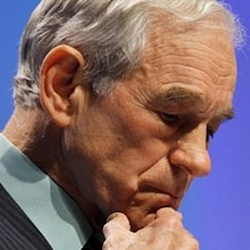
By Ron Paul
The horrific attacks in Paris on Friday have, predictably, led to much over-reaction and demands that we do more of the exact things that radicalize people and make them want to attack us. The French military wasted no time bombing Syria in retaliation for the attacks, though it is not known where exactly the attackers were from. Thousands of ISIS fighters in Syria are not Syrian, but came to Syria to overthrow the Assad government from a number of foreign countries -- including from France and the US. Ironically, the overthrow of Assad has also been the goal of both the US and France since at least 2011. Because the US and its allies are essentially on the same side as ISIS and other groups – seeking the overthrow of Assad – many of the weapons they have sent to the more “moderate” factions also seeking Assad’s ouster have ended up in the hands of radicals. Moderate groups have joined more radical factions over and over, taking their US-provided training and weapons with them. Other moderate groups have been captured or killed, their US-provided weapons also going to the radicals. Thus the more radical factions have become better equipped and better trained, while occasionally being attacked by US or allied planes. Does anyone not believe this is a recipe for the kind of disaster we have now seen in Paris? The French in particular have been very active in arming even the more radical groups in Syria, as they push for more political influence in the region. Why do they still refuse to believe in the concept of blowback? Is it because the explanation that, “they hate us because we are free,” makes it easier to escalate abroad and crack down at home? It may not be popular to say this as emotions run high and calls ring out for more bombing in the Middle East, but there is another way to address the problem. There is an alternative to using more military intervention to address a problem that was caused by military intervention in the first place. That solution is to reject the militarists and isolationists. It is to finally reject the policy of using “regime change” to further perceived US and western foreign policy goals, whether in Iraq, Libya, Syria, or elsewhere. It is to reject the foolish idea that we can ship hundreds of millions of dollars worth of weapons to “moderates” in the Middle East and expect none of them to fall into the hands of radicals. More bombs will not solve the problems in the Middle East. But a more promising approach to the Middle East is currently under fire from the isolationists in Washington. The nuclear deal with Iran ends UN sanctions and opens that country to international trade. Just last week the presidents of France and Iran met to discuss a number of trade deals. Other countries have followed. Trade and respect for national sovereignty trumps violence, but Washington still doesn’t seem to get it. Most presidential candidates compete to thump the table loudest against any deal with Iran. They will use this attack to propagandize against approving trade with Iran even though Iran has condemned the attack and is also in the crosshairs of ISIS. Here is the alternative: Focus on trade and friendly relations, stop shipping weapons, abandon “regime change” and other manipulations, respect national sovereignty, and maintain a strong defense at home including protecting the borders from those who may seek to do us harm. We should abandon the failed policies of the past, before it’s too late. 
By Paul-Martin Foss
Today’s daily joke comes courtesy of Richmond Fed President Jeffrey Lacker, who according to Marketwatch stated at yesterday’s Cato Monetary Policy Conference that “History has demonstrated the gold standard is unworkable.” What he failed to mention, or perhaps what he fails to understand, is that it is not the gold standard that is unworkable, but the expectation that government will adhere to the gold standard that is unworkable. Remember that the gold standard did not fall away because it was inefficient or counterproductive; it was actively destroyed by governments which did not want to continue to be bound by its strictures. The gold standard provides a restraint on the growth of the size and scope of government, which is why rapacious governments sought to do away with it. Is it really too much to expect professional economists to know this economic history? Maybe so. Take a look at the image posted within the Marketwatch article, originally posted to Twitter by the chief economist of the Senate Budget Committee Democrats.
The poster alleges that this chart demonstrates that the “gold standard era wasn’t actually one of stability.” A little sleight of hand in the wording, which we’ll get to in a bit. But do you notice anything funny about the graph? Let’s start off with the fact that the “gold standard” era is extended into the middle of the Great Depression. The classical gold standard era actually died in 1914. The gold standard was suspended during World War I and what resurfaced after the war was a bastardized gold exchange standard.
Note that the two deepest contractions in GNP growth during the alleged “gold standard” era are not in fact the fault of the gold standard, but the result of the Federal Reserve’s monetary creation. The Depression of 1920-21 was the inevitable result of the Fed’s inflationary monetary policy during World War I, and the Great Depression was the result of the Fed’s monetary policy misconduct throughout the 1920s. Once again, the fault of the central bank, not of the gold standard. And what about the alleged volatility during the gold standard? You’ll find that that again is the result of governments and their unwillingness to adhere to the gold standard, largely due to specie suspensions and nonsensical banking regulations. If the government declares that banknotes no longer have to be redeemed for gold, that will result in panicking and increased price volatility. But that again is not a problem of the gold standard, it is a problem of the gold standard being suspended through government fiat. This is where we get back to the sleight of hand in the phrase “the gold standard era wasn’t actually one of stability.” That argument can be made, but the instability of the gold standard era was due to government intervention to suspend or counteract the gold standard, not due to the gold standard itself. The Marketwatch article goes on to state falsely that Ron Paul championed a return to the gold standard. Dr. Paul favored not a return to the late gold standard as it existed in the United States but a return to a system of competing currencies. Just as in the early years of the United States’ founding currencies from around the world circulated throughout the country based on their metal content, so too under a system of competing currencies gold and silver would be the monetary units, with coins circulating based on their metal content. As Dr. Paul states in The Case for Gold: In the last six years, Nobel laureate Friedrich Hayek has called attention once again to the economic advantages of a system of competing currencies. In two books, Choice in Currency andDenationalization of Money, Professor Hayek proposes that all legal obstacles be removed and that the people be allowed to choose freely what they wish to use in transactions. Those competing monies might be foreign currencies, private coins, government coins, private bank notes, and so on. Such unrestricted freedom of choice would result in the most reliable currencies or coins winning public acceptance and displacing less reliable competitors. Good money — in the absence of government coercion — drives out bad. The new coinage that the Gold Commission has recommended and which we strongly endorse is a first step in the direction
This is why Dr. Paul continually sponsored the Free Competition in Currency Act during his time in Congress. But rather than deal with these proposals on their merits, it is far easier for reporters to dismiss Dr. Paul by conflating his proposals with the classical gold standard, and for gold standard opponents to blame the gold standard for the failure of governments to adhere to it. By that same logic, the fact that people commit murder shows the unworkability of laws against murder. That’s the level of thinking demonstrated by most of the top leaders in this country, the people who are making the important decisions that affect your life, the FOMC members who dictate monetary policy. Is it any wonder then that the dollar continues to be devalued, that the booms and busts continue, and that the next financial crash will make 2008 look like a cakewalk? But if our betters claim that up is down, war is peace, and monetary insanity is workable, who are we to question them? Get ready, it’s going to be a wild ride.
This article was originally published at The Carl Menger Center. 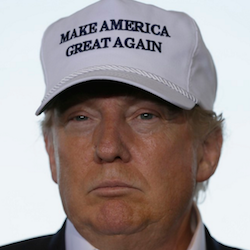
By Chris Rossini
In America, we've now had a solid 100+ years of government domination. The idea sprouted with the poorly-named "Progressive Movement" in late 20th century. We are now reaping the fruits of those disastrous ideas. This is what it's like when government creeps into every corner of our lives. This is Progressive America and all that it has to offer....though things can always get worse. The challenge becomes: "Where do we go from here?" If poor ideas got us into this mess, what shall replace them? Obviously, we here at The Ron Paul Liberty Report do our very best to spread the ideas of liberty. Layer upon layer of government intrusion must once again be peeled away, lest it strangles us like an anaconda. We obviously face great challenges. Throughout human history, as governments would grind people to the brink, it opened up the doors for the white knight that trotted in on his white horse. The idea of a white knight solving everyone's problems becomes very seductive. It doesn't require much of an intellectual leap for those who have become conditioned by government domination. It's very easy to think that maybe "this man" will be our savior. Believing in the white knight is not a step in the direction of liberty. It's actually a very dangerous step to take. During the last Republican Presidential debate, Donald Trump closed with the following statement. Please make special note of the number of times that "I" was used in the statement: Over the years, I've created tens of thousands of jobs and a great company. It's a company I'm very proud of. Some of the most iconic assets anywhere in the world. And I will tell you, I don't have to give you a website because I'm self-funding my campaign. I'm putting up my own money.
This is not the language of liberty. Rather it is a white knight who is unashamed of saying the words "I want to make our country greater than it's ever been."
America can only be great again when each and every citizen enjoys the liberties that our ancestors enjoyed. They inhaled and exhaled much freer air. We're choking on government. Holding onto failed Progressive ideas will surely continue America's pain. However, choosing the white knight will only extend that pain in a much scarier direction. Liberty is the only solution. 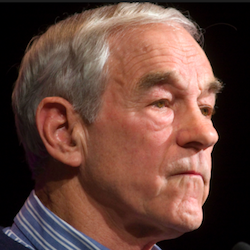
By Ron Paul
If we really want to "export" the philosophy of liberty, we must do so with ideas, and not military force. Perhaps if we did so, we would have a thriving economy, and maybe we wouldn't be 20th in the world when it comes to defending liberty. If we were able to set a good example by practicing what we preach, perhaps other countries would want to emulate us. The entire idea of spreading "American exceptionalism" out of the barrel of a gun is terribly flawed. The wrong path is coming to an end. I'm delighted that NATO leaders are frustrated and that they don't know what to do. I actually have some advice for them: Disband! Send everybody home. Robert Taft was correct when he advised that the U.S. should not have joined. We're looking at the results of his advice being ignored. No more war profiteering! That should be our slogan. Thank you, and be sure to tune in to tomorrow's Liberty Report! |
Archives
April 2024
|

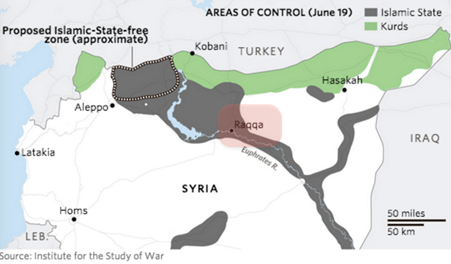
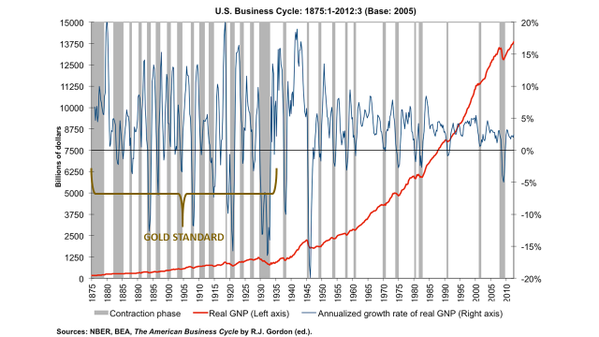
 RSS Feed
RSS Feed



